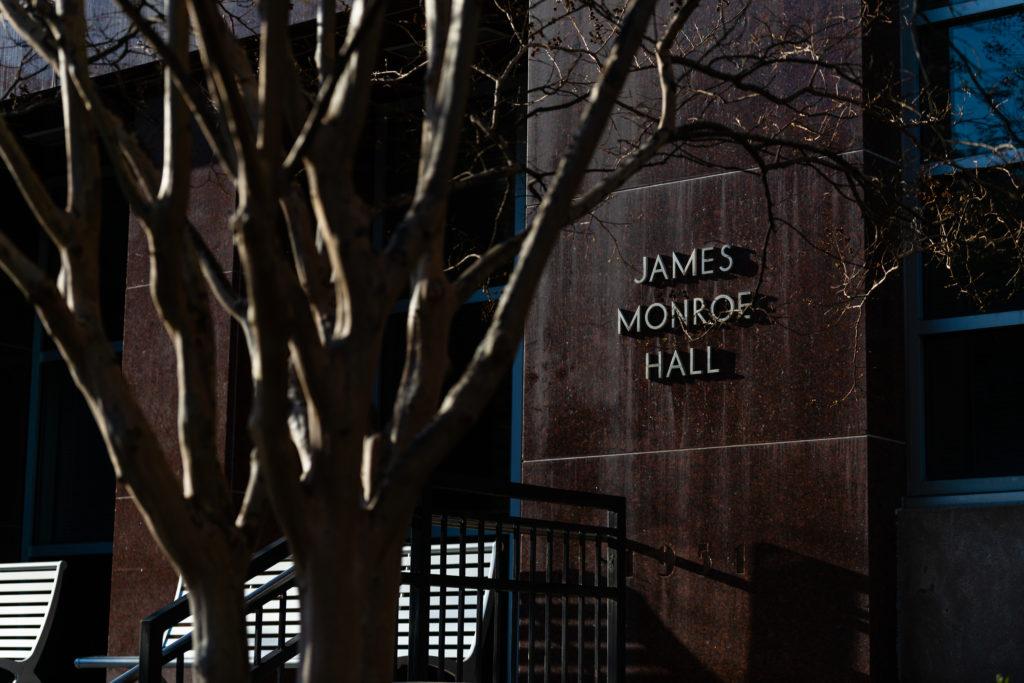Researchers have found that belief in a white supremacist conspiracy theory leads to increased support for anti-Black political violence and anti-democratic sentiments, according to a study by a GW professor released earlier this month.
The study found that people who believe in the “great replacement” conspiracy that white people lose socioeconomic power because of increasing power among Black Americans tend to be more likely to support anti-Black political violence, which can include shootings targeting Black communities or the mass incarceration of Black people. The justification of political violence using the conspiracy is a continuation of white supremacist ideology that stemmed from the Reconstruction era in the 1860s and 1870s and the Civil Rights Movement in the 1960s, according to the study.
The study surveyed more than 4,700 Americans online through third-party research firms in 2022 and 2023. The firms gave researchers experimental groups that were diverse in income, race and sex to ensure a representative sample of the U.S. population.
Researchers asked the experimental group to write what immediately came to mind when they thought about racial demographic change within the U.S. to detect if priming them to consider race made them more supportive of political violence. Researchers then asked both groups to measure their level of agreement with the idea that it is reasonable to use violence against people who are politically opposed to them using the Likert scale.
The study found that respondents who were asked about racial demographic change were 3 to 4 percent more supportive of political violence than those who were not primed to consider race. Those primed also often mentioned the Great Replacement misconception in their responses.
Andrew Thompson, an associate professor of political science and the study’s lead author, said participant responses mentioned fears related to Black people more than other minority groups when researchers asked about diversification in the U.S.
“When you ask the American public on the whole, what comes to mind, a lot of minds, obviously within the context of the article, they think of Black folks,” Thompson said. “They think of Black folks, they think of Black power, in sorts of anti-Black ways, in the sense of a racial threat.”
Thompson said many of the people who believe in the Great Replacement misconception say their fears are based on recent advances in the rights of minorities, but the misconception has remained in the minds of Americans for centuries. Anti-Black political violence tends to flare up in opposition to increases in civil liberties for Black Americans like during Reconstruction and the Civil Rights Movement, he said.
“But at core, as it seems, among the American public, they’re really just the same sets of ideas that harken back to reconstruction, harken back to the civil rights movement, and how deeply anti-Black they are,” Thompson said. “And the irony is that simply, none of the actual empirical evidence supports the idea that Black Americans would even be involved within this.”
Junior Max Beveridge, a co-author of the study and a former Hatchet reporter, said the questions in the study did not mention Black people specifically, but researchers still found that respondents mentioned Black people in their answers about diversification.
“When we asked white Americans, not even mentioning Black Americans specifically, just tell us what you think about racial diversification,” Beveridge said. “White Americans who are asked that question later are significantly more supportive of political violence.”
Beveridge said the study showed the connection between anti-democratic beliefs that influence political action, also known as democratic backsliding, and belief in the Great Replacement misconception. Researchers demonstrated this by showing an increase in support for political violence in respondents who expressed negative opinions about racial diversification, according to the study.
“We provide a new lens of democratic backsliding in the U.S. that’s related to white Americans’ fears of racial diversification,” Beveridge said. “And specifically, Black Americans gaining political, economic and social rights.”
Experts in racial influences in politics said the results of this study provide insight into how racism in the U.S. can endanger democracy.
Xanni Brown, a postdoctoral researcher in political polarization at the University of Pennsylvania, said the Great Replacement misconception has been used by white Americans in the past during instances where Black Americans were gaining more rights. The study is another example of the misconception being used to justify opposition to movements for civil rights, she said.
Brown said people often come to believe in the Great Replacement conspiracy because they are uncomfortable with the racial makeup of their local communities changing. She said one way to dissuade people from believing in the Great Replacement misconception is to expose them to diverse communities to allow them to see that they do not need to be scared of diversification.
“I think part of it is figuring out how to tamp down some of the reactance to the prospect of an increasingly diverse community,” Brown said. “And then let the contact and experience of being in that sort of space do the work towards making people less reactive towards the idea of diversity.”
Brown said as the U.S. diversifies and minority groups gain more rights and socioeconomic status and similar studies are essential to determine if the U.S. will grow past its anti-Black roots or become a nation too divided to continue as a democracy.
“That’s a real open question, whether that sort of demographic transition will redound to a more just and equal democracy or whether it redounds to a real democratic breakdown,“ Brown said. ”And I think that it’s really important to study what factors might tip it in each of those directions.”
Spencer Piston, an associate professor of political science at Boston University, said the study’s conclusion that racist violence is a tool white Americans use to keep political power is “compelling.”
“I suspect the authors are correct that many white people prefer racist violence against Black people to full democracy in the United States,” Piston said in an email.





